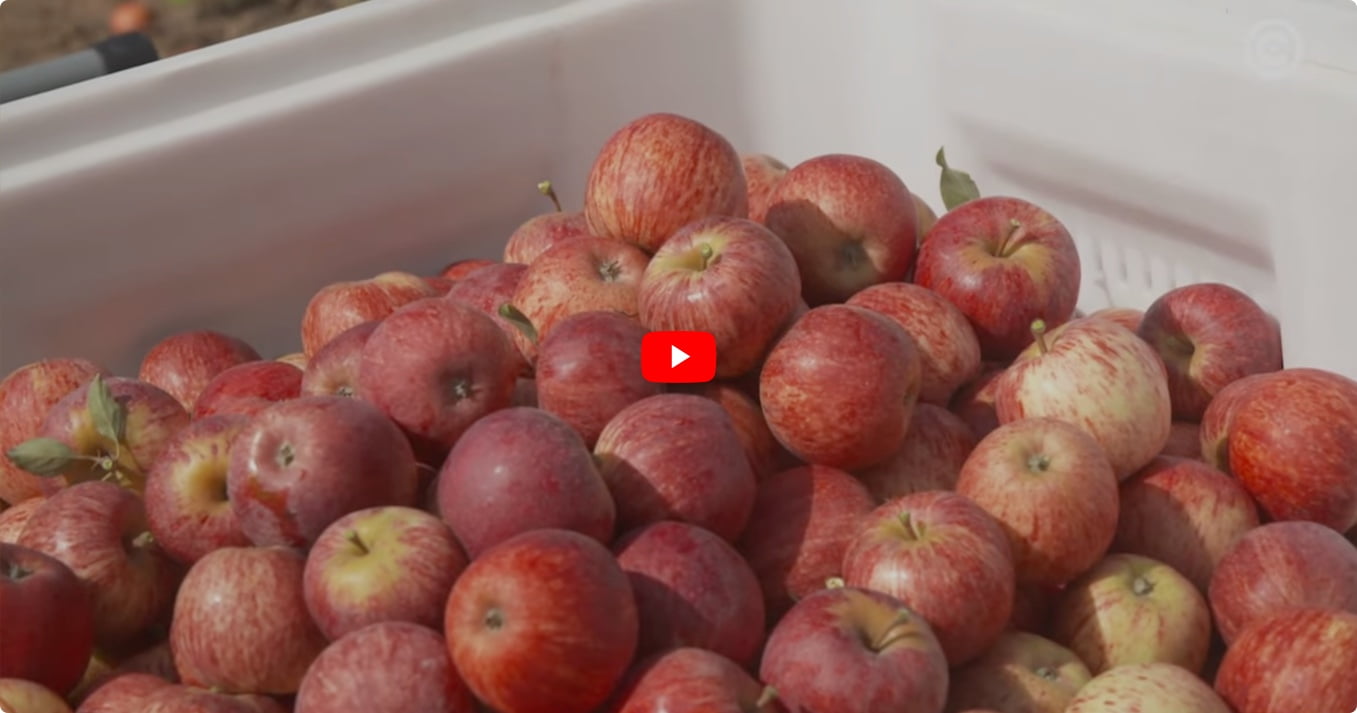Raising awareness for conscious consumption
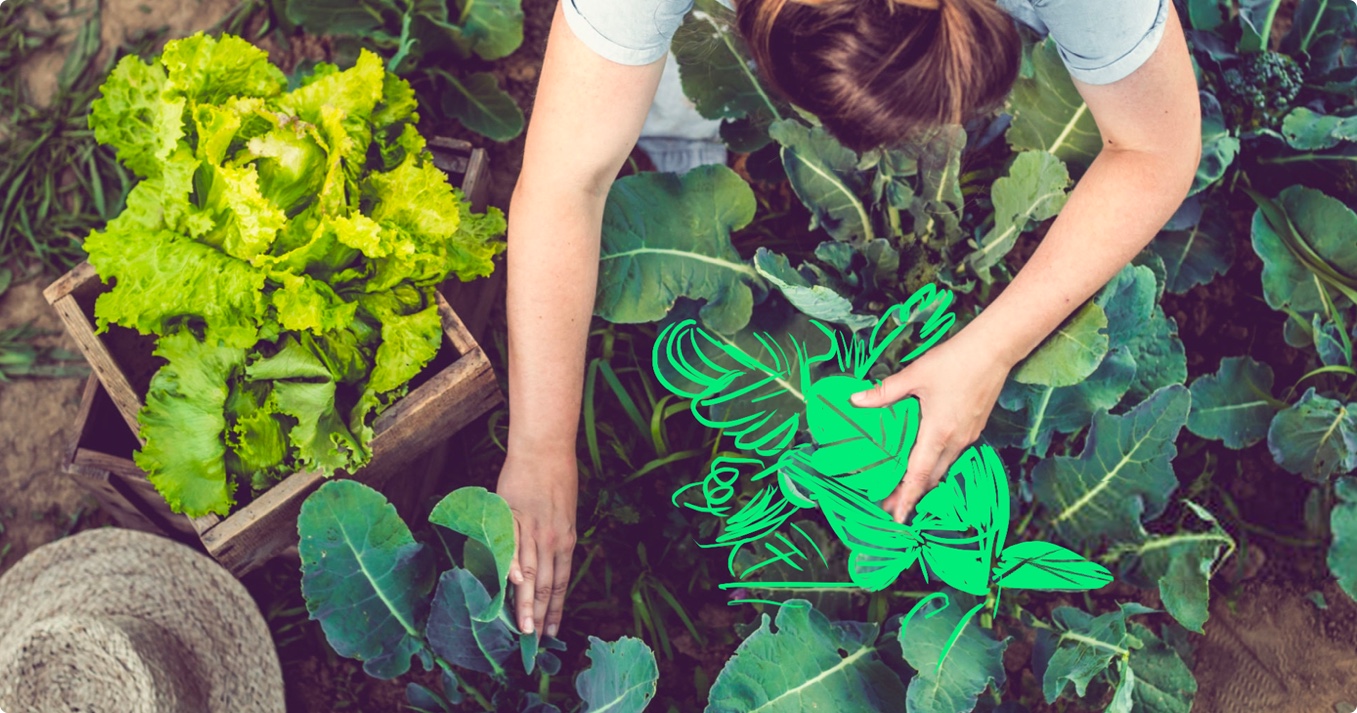

Less food waste
Every year, millions of tonnes of food are wasted globally, with profound social and environmental implications. Aware of the importance of reducing food waste, year after year, we have been developing mechanisms and concrete actions to promote conscious consumption, with clear gains for both consumers and our national producers.
Reducing food waste
United against waste
"Food loss" is the decrease in the quantity and quality of agricultural, forestry and fishery products intended for human consumption and ultimately not consumed by people. Food losses occur along the supply chain, from production to harvest and post-harvest handling, storage to processing, and transport.

- It is estimated that1/3 of all food produced globally is lost or goes to waste… aproximadamente approximately 1.6 billion tonnes per year.
- This means 51 tonnes of food is wasted every second.
- Around 870 million people around the world are undernourished.
- It accounts for 8% of global greenhouse gas (GHG) emissions.
- • Annual food loss and waste are estimated to reach 2.1 billion tonnes worth US$1.5 trillion..
Mobilised against food waste and given the position we occupy in the value chain, we have been promoting partnerships in the supply chain that enable us to develop important innovation and circularity projects and combat the waste generated.
In terms of our operations, we have been developing a set of mechanisms that enable us to accelerate the disposal of products and a programme for donating surplus food to the Community and our Employees.

more than 37 M€ of waste by 2021
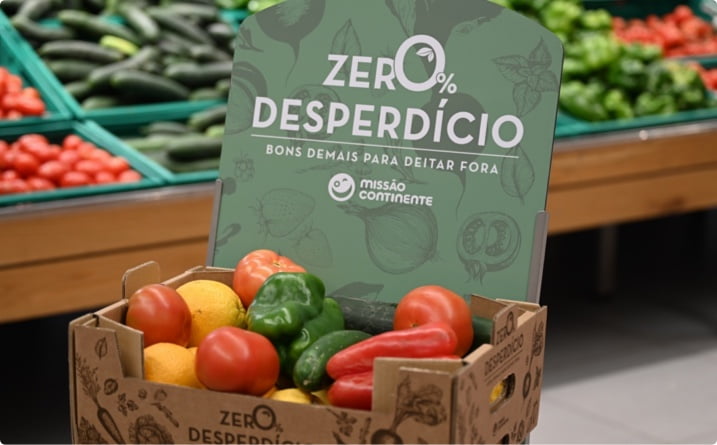
Zer0% Waste of fruit and vegetable boxes
To prevent stock breaks, Continente developed 5 kg boxes with fruit and vegetables that are close to exceeding the optimal consumption point.
Pink Labels
A strategy implemented for over ten years in Continente stores, the pink labels are smart depreciation labels that communicate a price reduction on products approaching their expiration date. This system avoids waste and simultaneously offers economic benefits to the customer.
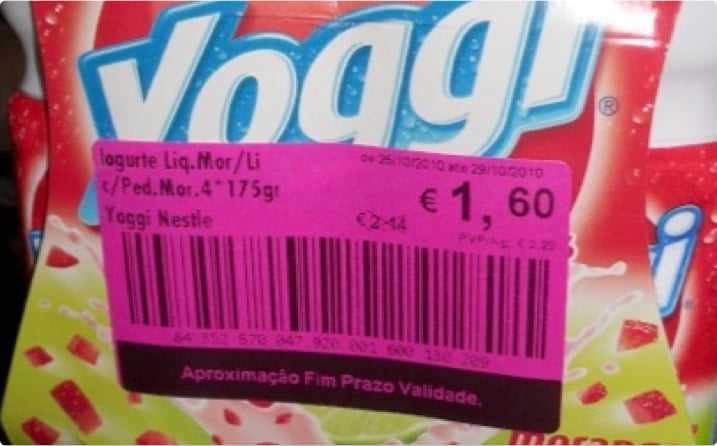

Donation of surplus food
The reuse and redistribution of food products are part of Continente store's daily routine:
- With social solidarity institutions and animal welfare associations;
- With employees in the stores and warehouses' social areas.
Promoting partnerships in the value chain

The Continente Alcobaça Apple Cider Vinegar is the result of an initiative of the Continente Producers' Club, the "Waste Fair". In fruit production, some by-products are generated, namely apples, which are not valued freshly because of their size and appearance. Therefore, the need arose to value this apple, considered a by-product, in a differentiating and circular economy product.
Continente Producers Club
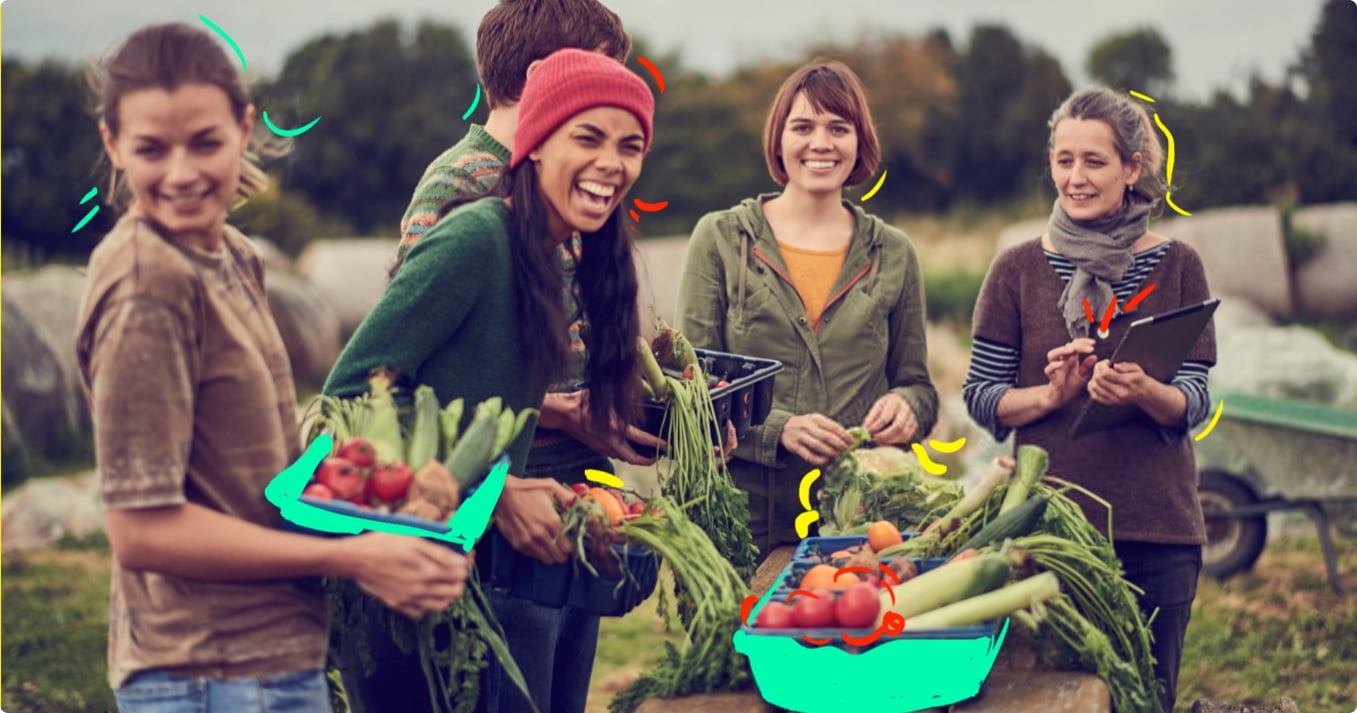
The Continente Producers Club (CPC) is a support structure for Portuguese agricultural and livestock production, set up in 1998 to bring Sonae closer to national producers from the north to the south of the country, Azores and Madeira.
Its mission is to promote national products according to high quality and safety standards, supporting its producers in a consistent and structured way.
A partnership work, supported by technical and scientific knowledge, in which everyone wins.
Producers win
It is a guaranteed way for producers to sell their products. It also promotes the national agricultural and livestock sector, creating jobs, fostering regional development, and promoting ambitious, innovative projects of unquestionable economic and social added value for the country.
Customers win
It guarantees the supply of excellent national products that respect the best production practices and are aligned with consumption trends. Furthermore, supporting local production and small-scale producers also allows Continente stores to offer "Regional Products".

-
256 members
producer organisations,
individual farmers, and small
family businesses - 11.000 indirect jobs
- + 200.000 hectares of national productive area
- 423 M€ purchases made from national production
- = 234.000 tonnes of national product

Continente Producers Club in action

CPC Academy
The CPC Academy is a training programme that has been developed specifically to share knowledge with the Club's producers to make them more knowledgeable about MC and the various areas of the supply chain.
We invite each participant to present an innovation project with the support of MC's Innovation Department throughout the programme. This initiative was launched in 2017, and we are now in the 5th edition of the Continente Producers Club Academy.
In four editions of the CPC Academy, around 56 producers have been trained - 56 national companies in the agri-food sector.
The last edition presented 13 innovation projects - 13 trained producers, 11 of whom were women aged between 24 and 55!
Declaration for Sustainability - Continente Producers Club
To promote sustainable production and consumption and a food system that respects the environment, the Continente Producers Club has established, together with its member producers, a Declaration for Sustainability based on 11 principles and various initiatives.
These initiatives cover all areas of the agri-food sector and the good practices in production, packaging, nutrition, etc., that must be achieved.
This Declaration for Sustainability, presented to the Club's 251 members, is in line with the 12th UN goal (Sustainable Consumption and Production), the European Farm to Fork Strategy (A fair, healthy and environmentally friendly food system) and the Ministry of the Environment and Energy Transition's Roadmap to Carbon Neutrality 2050 (RNC2050).
The initiatives set out in this declaration will be implemented over three years. In a work of partnership, implementation and verification, the Continente Producers Club will be supporting national producers, helping, and preparing them to meet the targets set by the European Commission.
In the future, compliance with this Sustainability Agreement may be a criterion in purchasing decisions.
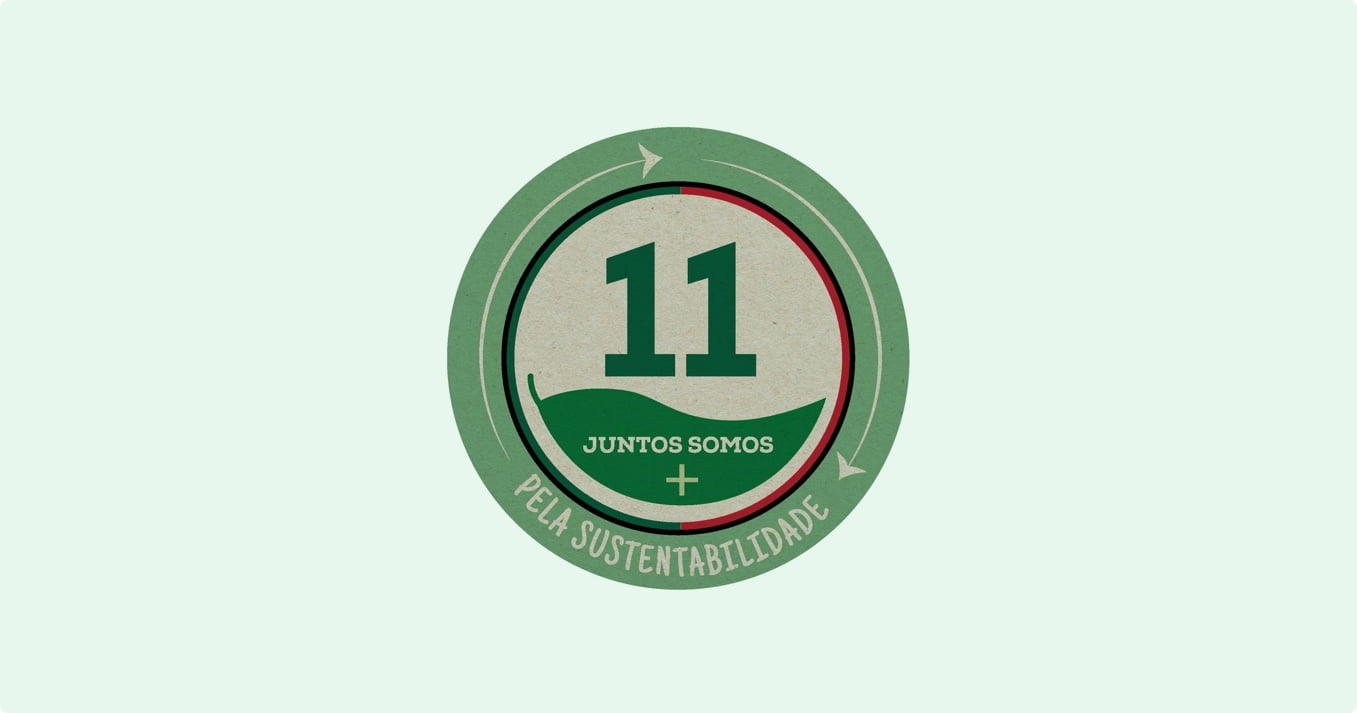
Project "Wheat Cereals with Biodiversity - Let's save the Montagu's Harrier Eagle"
The Montagu's harrier eagle is one of the birds in the most significant decline of the national terrestrial fauna. This is due to the replacement of wheat and oat cereal crops by permanent grasslands, whose cutting is done earlier, coinciding with the nesting period of this species, which can cause the loss of eggs, chicks, and sometimes adults well.
In order to promote the conservation of this species, the Continente Producers Club, the National Association of Protein, Oilseed and Cereal Producers (ANPOC) and the Research Centre for Biodiversity and Genetic Resources (CIBIO/BIOPOLIS) of the University of Porto, with the collaboration of the Institute for Nature Conservation and Forests (ICNF), have joined forces in a project that aims to value the contribution of national wheat fields to promote bird biodiversity, including endangered species such as the Montagu's Harrier Eagle. Farmers and landowners are actively helping identify colonies of these birds, sending information to CIBIO/BIOPOLIS and ICNF about eagle sightings, the number of animals and, whenever possible, their sex. In addition, they are voluntarily implementing measures to protect nests and chicks (by delimiting the space where they are located so that there is no activity by agricultural machinery and installing anti-predator guards, for example). So far, 13 harvests of 26 domestic producers have been monitored to implement these measures.
Through this initiative, about 7 tonnes of flour used daily in the bakeries of Continente shops already come from wheat fields in the Alentejo region that are monitored to protect biodiversity and conserve endangered birds.
The Continente Producers Club is committed to protecting the fauna and flora of our country, biodiversity, and environmental sustainability,believing that this project can have a very significant impact on the survival and recovery of this species currently in the process of disappearing from the Alentejo plains.
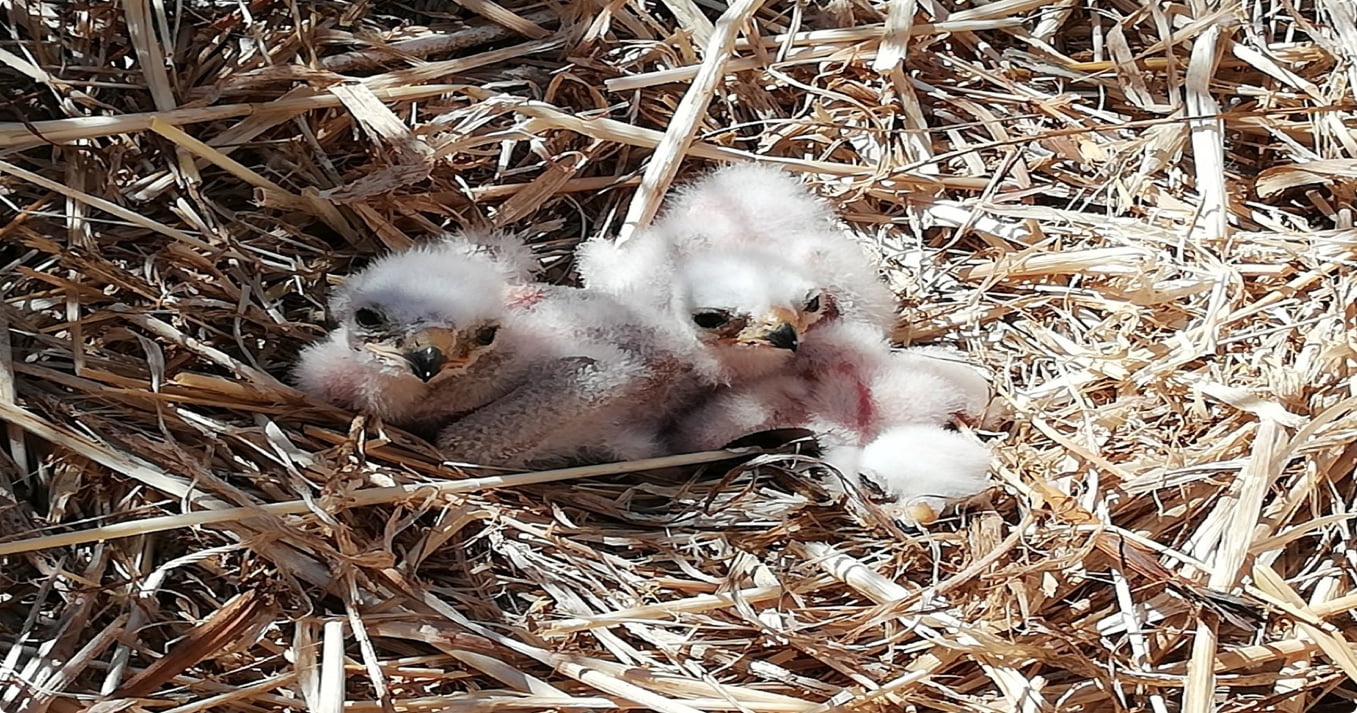
Zero Residue - Portuguese Fruits and Vegetables without Pesticide Residues
The Zero Residue Project results from the partnership between the Continente Producers Club and Zerya (Spanish consultancy) and aims to develop customised agricultural production systems, focusing on good farming practices and residue-free products with a view to the certification of producers.
In these systems, horticultural products free of pesticide residues are guaranteed, safeguarding the principles of efficient use of resources, lower energy consumption, lower emissions, and greater control over microbiological aspects. This is a key issue regarding food safety and integration with the environment, ensuring the sustainability of the entire agricultural system. A system that is not limited to a set of prohibitions but rather to an in-depth knowledge of production and rational use of resources, namely phytopharmaceuticals. The project's objective is to guarantee National Horticultural Products with Zero Residue in Continente stores. This project involves 29 fruit and vegetable producers’ members of the Continente Producers Club. They will apply management and production models developed by Zerya and then have their production and products certified as Zero Residue. At this moment, about 1,000 hectares will be affected to the Continente Producers Club project.
The Producers Club thus commits to plant production without residues, ensuring good practices at the source and healthier Continente fruit and vegetables. This commitment has been materialised through the support and coverage of training costs and the certification of the producers.







